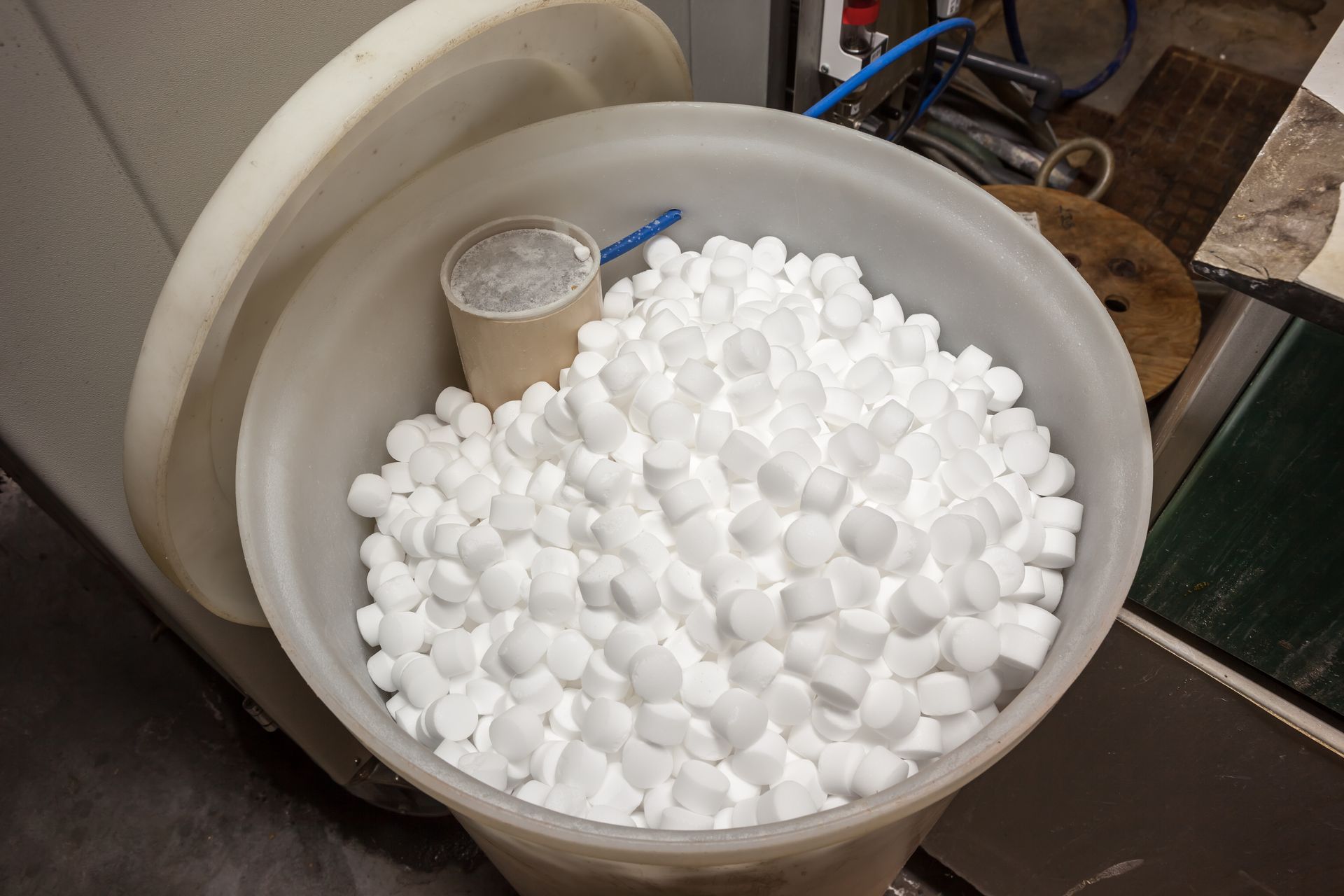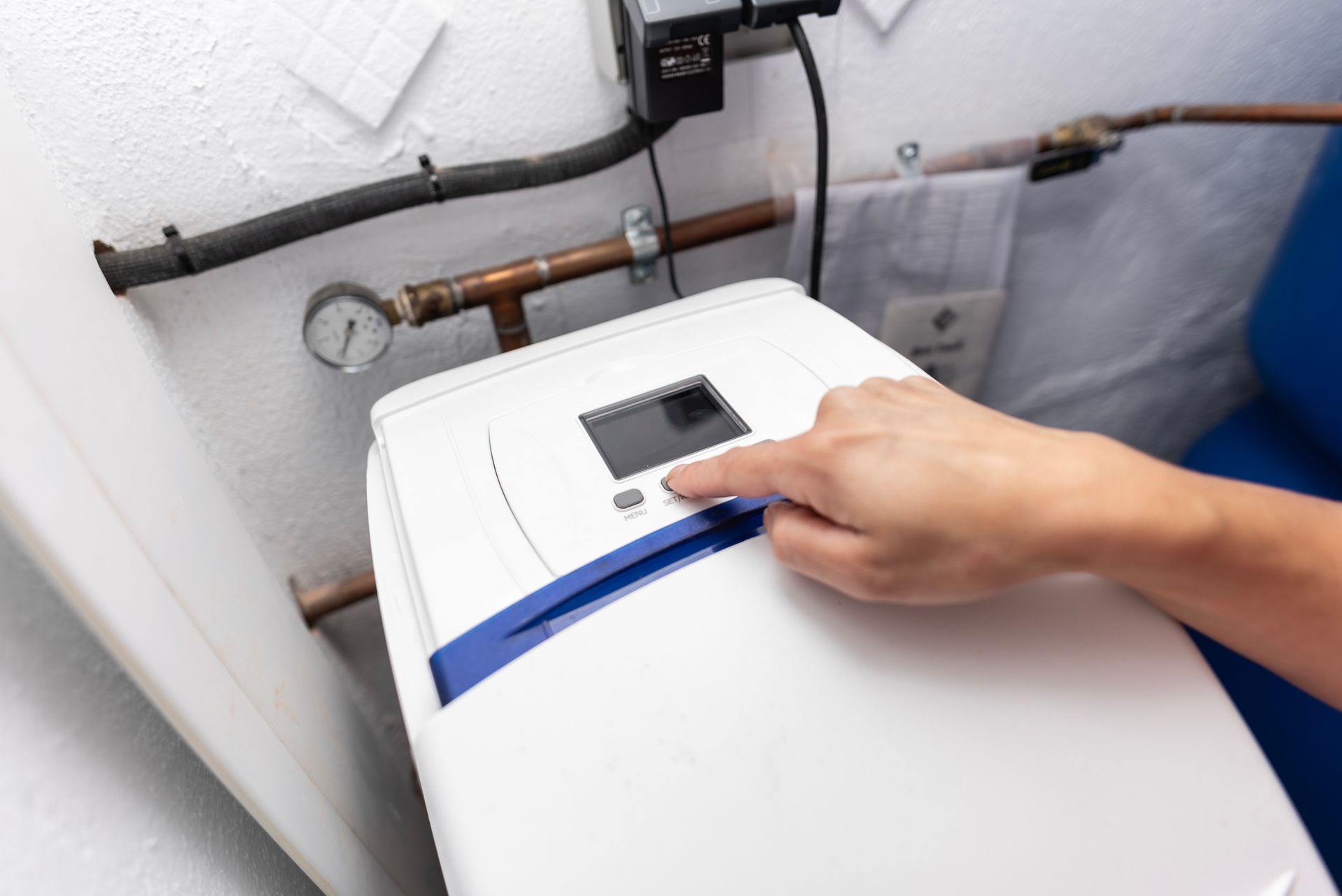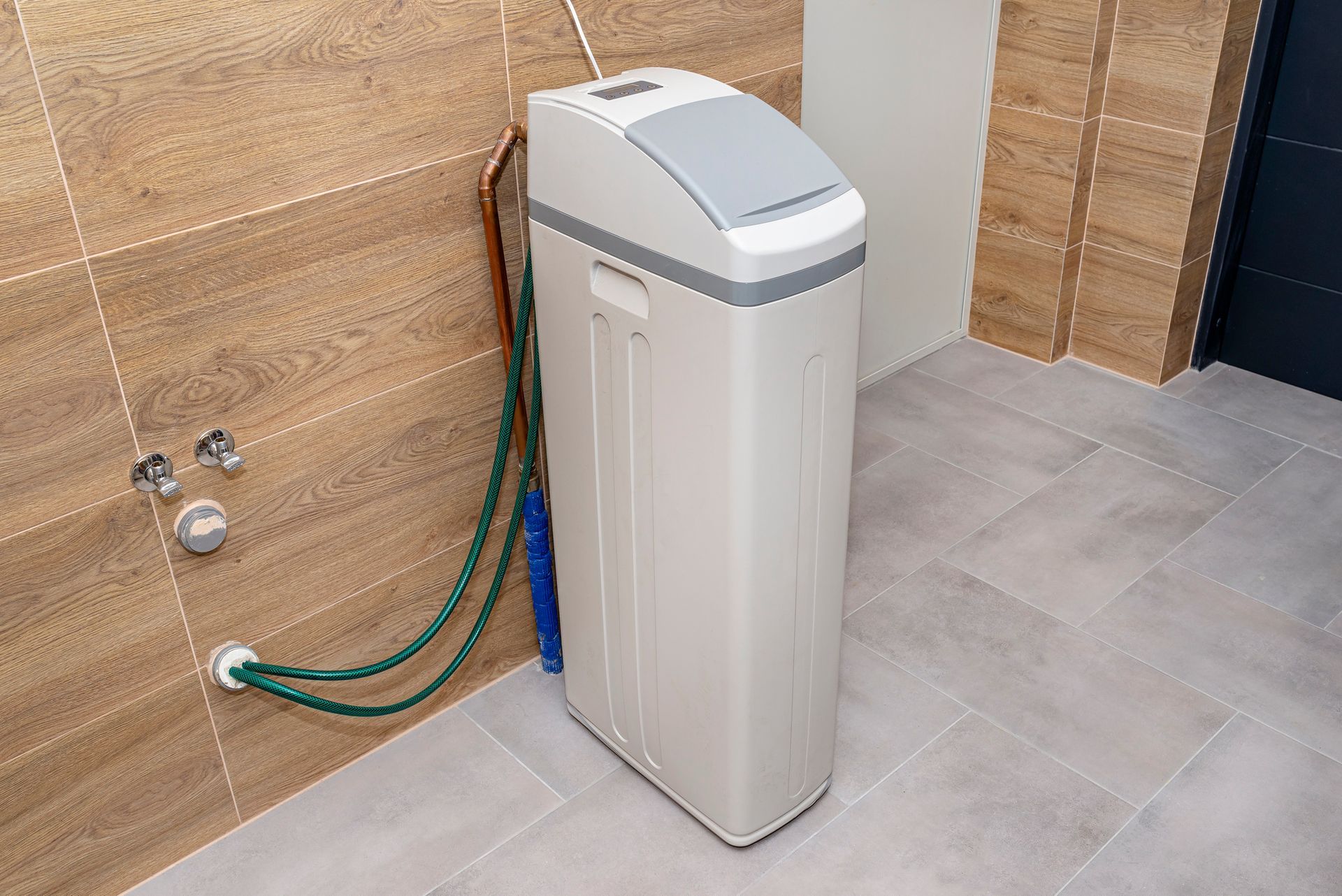What is Hard Water?
Rainwater is naturally soft, but as it travels through the ground, it picks up minerals from rocks and soil like limestone, dolomite, and sandstone, which are high in calcium and magnesium. In Minnesota, soils are especially rich in these minerals. When water absorbs calcium and magnesium, it becomes “hard.” Hard water may also contain traces of dissolved iron, dirt, and sediment.
What are the Symptoms of Hard Water?
Hard water causes a variety of noticeable issues in your home, including:
- Scale buildup in pipes and appliances
- White spots or streaks on dishes and glassware
- Dry, itchy skin and brittle hair after showering
- Faded or worn-out clothing
- Reduced efficiency of water heaters, dishwashers, and washing machines
If you're seeing any of these signs, schedule a no-obligation water test with us to confirm if hard water is the cause.
What is a Water Softener?
A water softener is a specialized filtration system that removes hard minerals (primarily calcium and magnesium) from your water through a process called ion exchange. Think of it as your home's defense system against hard water damage, protecting your plumbing, appliances, and quality of life.
How Do I Know I Need a Water Softener?
You likely need a water softener if you notice:
- White residue on faucets or glassware
- Hard-to-clean scum in tubs or sinks
- Reduced water pressure
- Dull laundry, itchy skin, or dry hair
The best way to know for sure? Schedule a free water test with our team. We’ll assess your water quality and recommend a system tailored to your needs.
What Are the Benefits of Soft Water?
Extend the Life of Appliances
Soft water prevents scale buildup, helping your appliances last longer and operate more efficiently.
Improve Water Heater Efficiency
Hard water can reduce water heater efficiency by up to 24%. Soft water helps it maintain optimal performance and lowers energy bills.
Cleaner, Fresher Laundry
Soft water improves stain removal up to 100 times, reduces detergent use by 50%, and keeps fabrics softer, brighter, and lasting longer.
Spot-Free Dishes
Soft water is:
- 12x better at removing food particles
- 6x more effective at reducing white spots
- 2x better at preventing film buildup
- It can also reduce dish detergent usage by up to 70%.
Softer Skin and Hair
Hard water leaves a mineral film on your body and shower surfaces. Soft water rinses cleaner, leaving your skin soft and your hair smooth and manageable.
A Cleaner Home
Say goodbye to stubborn spots and soap scum. Soft water keeps faucets, tubs, and glass shower doors looking spotless with less scrubbing.
How Does a Water Softener Work?
1. Filtering Process: Water softeners use a process called ion exchange to remove hard water minerals. Inside the softener's tank is a filtering material called resin, which is coated with sodium ions. As hard water flows through the tank, the calcium and magnesium ions are drawn to the resin, replacing the sodium. This process strips the water of hard minerals, making it "soft."
2. Regeneration Cycle: Over time, the resin beads become saturated with calcium and magnesium, so the system enters a regeneration cycle. During this process, a brine solution (saltwater) flushes the beads, recharging them with sodium and flushing the calcium and magnesium down the drain. This ensures the softener can continue filtering hard water minerals effectively.
How Long Does a Water Softener Last?
The lifespan of a water softener depends on the quality of the water, the frequency of use, and the maintenance. In general, a water softener can last for 10 to 15 years.
How Do I Maintain a Water Softener?
A water softener needs to be maintained regularly to keep it working properly. This includes adding salt to the softener, flushing the resin beads, and inspecting the unit for leaks.
Water Softener Options
Premium Softeners
Engineered for unmatched efficiency and durability, our premium softeners combine fine mesh resin, optimized salt usage, and maximum water efficiency. Their 23% smaller resin beads provide superior ion exchange, delivering double the efficiency and lifespan of traditional softeners—saving you time and money.
- Fine Mesh Resin
- Unmatched Efficiency
- Industry’s Longest Warranty
- Purifies and Softens
- Multi-Purpose Filtration
Standard Softeners
Built with Hague’s durable components and on-demand operation, our standard softeners offer long-lasting performance and superior efficiency. They outlast competitors and surpass outdated timer-based systems, making them the ideal choice for high-quality water treatment at an exceptional value.
- Industry Leading Warranties
- Demand-Based Efficiency
- Durable and Affordable
- Less than $1 of electricity a year
Already Have a Water Softener?
Northern Plumbing & Softening services and repairs all major makes and models, even if you didn’t buy from us. Whether your system needs a tune-up, new parts, or a full replacement—we’ve got you covered.









